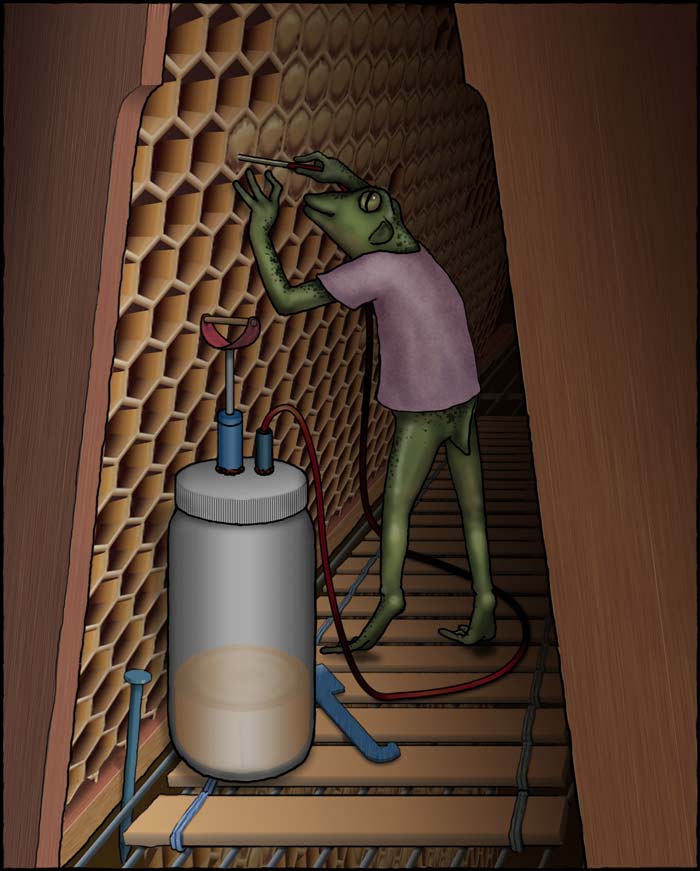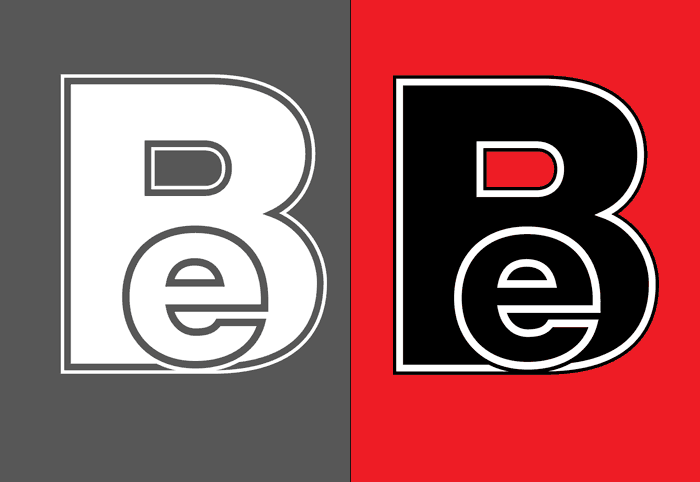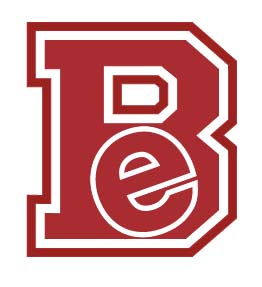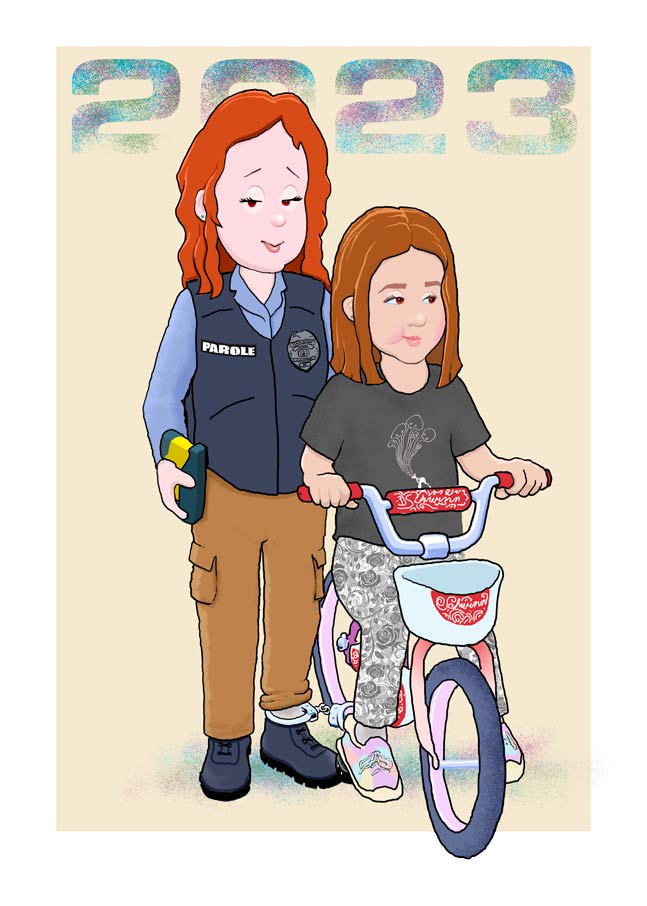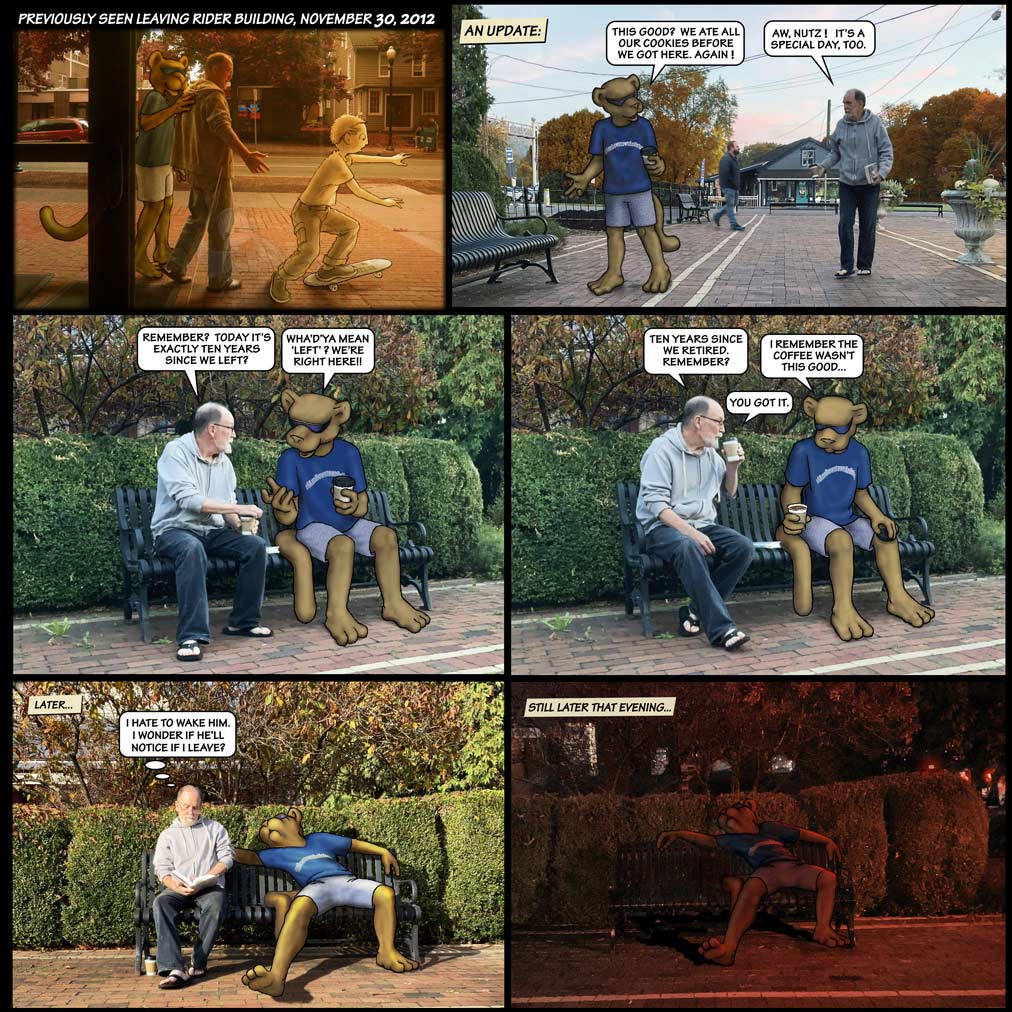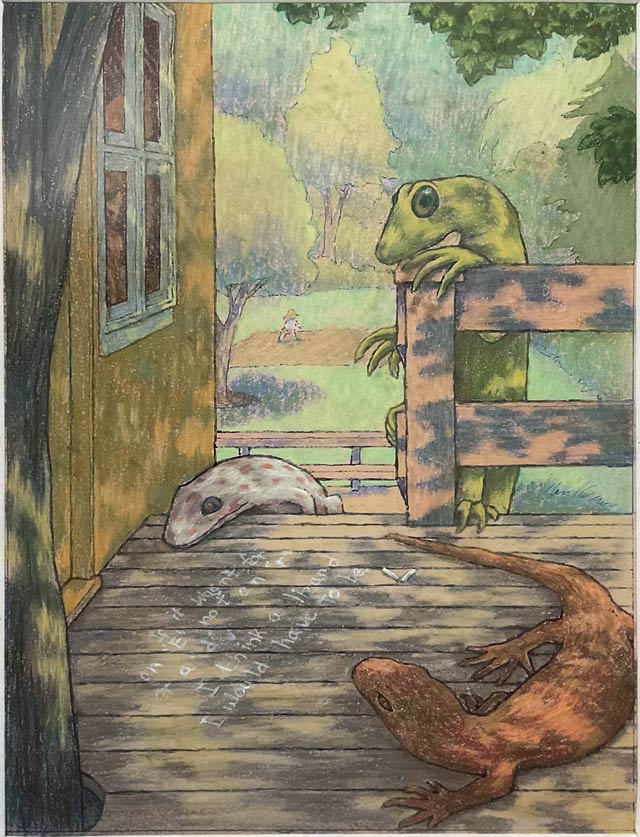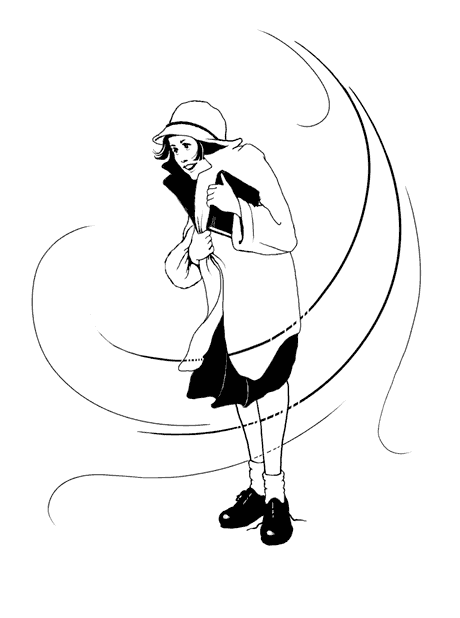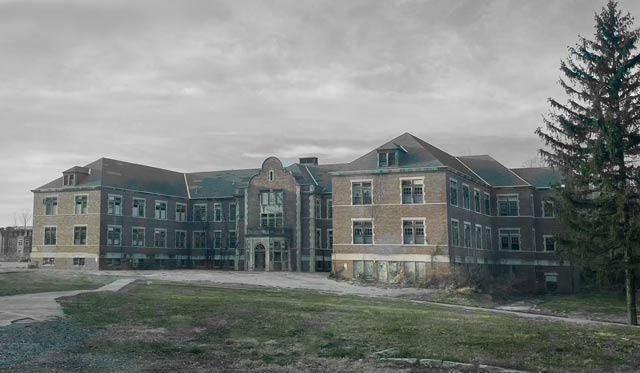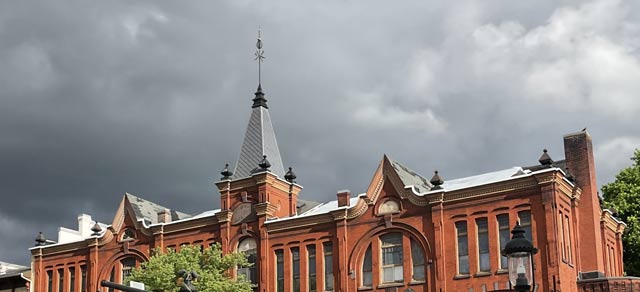This is an older post from a November 2009 blog:
Barry was a runner. He stood in the half light by the back door of the ward, his eyes almost closed. He rocked gently as he shifted his weight from left foot to right foot and back. He was tall and thin; so thin that I could see the bones of his elbows and, under the circumstances, his hips and kneecaps. He was wearing a stained and stretched cotton tee shirt, and nothing else. Each time the door opened Barry showed little perceptable change, just a subtle softening of his rhythmic murmur. He was watching for an opportunity. Someone would turn their key then turn to talk to another resident before locking the door; a work boy from another cottage would leave the door open to toss out wet laundry and take their eyes away for just a moment; any opportunity and Barry would be gone.
This story doesn’t start with Barry, though. It starts with the summer’s constant rain. I’d arrived at work early in the morning of the day before, driving a bug-eye Sprite that suffered badly in wet weather. It had sputtered to a stop in the gravel before it was completely in its parking space and I couldn’t get it to turn over again. The Sprite sat so low to the ground, even a normal puddle would soak my crankcase. The puddles that morning were over my axels. I had to open the door and lean against the window strut to push it the rest of the way into its space. I was lucky to have made it to the parking lot.
Over the roar of the rain on the car roofs I could hear voices from the upstairs windows. I was 19 and worked at the state hospital, in cottage C-2—a ward of 65 profoundly retarded adult men. The ones who could talk called me Pop, and they were the ones at the screened windows calling me, telling me it was raining and asking for cigarettes.
Most of the morning I was distracted, thinking about my car and the trip home. I hoped for just a short break in the rain so I could run out and dry my distributer. Over five hours the rain didn’t even slow down. Then I realized that the gas tank, too, probably had water in it. At lunch time we heard rumors that Agnes—which had been a hurricane, then was just a storm, then was a hurricane again—had made landfall less than 100 miles away. I’m not sure how true it was; we could see the rain seeping under the back door and collecting in pools where we’d never seen rain before. Then we started to hear radio reports that the Schuylkill River was over its banks and route 724, the highway past the hospital, was flooded in several places. By 3pm, the end of our shift, we heard second shift couldn’t make it in. Parts of south Pottstown were flooded, Spring City, too. Most of the people who worked at the State Hospital lived in one of the two towns, and now they wouldn’t be able to get across the river. They were on the north banks of the Schuylkill and we were on the south. I wouldn’t need to worry about the Sprite; we were all spending the night right here.
An area in an empty cottage was set up with beds and clean linen for stranded staff, but I was more comfortable on my own cottage. I enjoyed seeing the changes in behavior as the guys were bathed and given pajamas. I saw sides of them that I never got to see on day shift. There was joking and good natured bickering almost like we were a big family. We had no idea how things usually went in the evening, so our confusion helped create a holiday like atmosphere. I was made fun of for giving someone’s favorite pajamas to the wrong guy. I opened a few boxes of Keebler cookies even though they were for special occasions. I sat on one of the large wooden benches in the day room and nodded in and out of sleep. At some point the television was turned off and the only sound I could hear was rain.
In the morning I woke as the guys wandered into the dayroom. Somebody stood on a chair and turned on the TV, filling the dayroom with weather reports. I started my regular routine without the usual drive to get things finished. Giving out meds happened quick enough, but tooth brushing lasted most of the morning. Even the workboys, who would usually be finished changing and remaking our 70 beds by lunch, were still at it into the afternoon. Most appointments were canceled and the only reason to be off cottage was for meals. We were lucky to have our cafeteria in the basement of our building so some residents stayed in their pajamas through out the day.
Late in the afternoon, Joe, a workboy in his late 50s, shouted “Pop” and turned an invisible key in the air. He needed my key so he could open the backdoor and toss out several large bundles of dirty sheets. I tossed Joe my ring of keys knowing he could pick the right one. Then I must have sat back on a bench and dozed off because I jumped when I heard Joe shout “Pop” again. I looked around for him, and he was by the hallway to the backdoor wildly waving me over, then he ran down the hall.
I followed him to the door at the end of the hall. Joe had left it standing wide open. He took a step through and again pointed, stabbing with his finger furiously.
“He! He!” Joe yelled at me.
I looked and only saw the laundry tied in big bundles in a heap at the bottom of the stairs. It was soaking up some of the water that ran under the door. “It’s okay, Joe. The water won’t hurt…”
“No! No! He, pop, he!” Joe was frantic.
Somebody must have gone out. Barry wasn’t in sight, and I knew if he was still here, he’d still be close to this open door. I ran down the stairs and stepped outside. There was no one in sight outside, either. Visibility was limited in the rain, and though I could barely see the tree line behind the fields by our building, I could see that Barry was gone. Damn. In a tee shirt. In the rain. And I didn’t know if he was wearing shoes. Barry’s lack of pants wouldn’t be a problem unless he rolled on the ground. Without shoes, though, he could get a bad cut along these roads and fields.
I ran back up the stairs and locked the door with the keys that were still in the lock and ran to the office. I glanced quickly around the day room, then shouted through one of the glassless windows that covered the office, “Barry took off! I’m going to go look for him; he might be barefoot.”
Janet, older and in charge, sat at a desk in the tiny office. “I’ll call it in,” she said calmly, then added, “you’re gonna get wet.”
At the bottom of the stairs I had no idea which way to go. There were fields across the road and woods beyond that. I thought I’d do well to cover areas that couldn’t be searched by someone sitting in a car. The fields were deep in mud. If Barry had crossed them I’d see visible prints or him struggling to get free of the mud. There were no prints, so I headed down an unused gravel road toward the hospital farm.
The State School and Hospital had once been completely self sufficient. Capable residents once worked the farm. A few made reed fishing creels that were sold. There was a dairy farm, chicken coops, meat and vegetable processing areas, all completely abandoned once social services realized these people could live independently in the community. Empty barns, empty coops and cribs, empty warehouses- there would be broken glass, sharp metal, maybe even rats. I kicked up sharp cinders as I walked and stepped on broken glass and bits of binding wire. Why hadn’t I thought to bring shoes for Barry? A first aid kit? If I find him and he’s hurt, how do I get him back?
The gravel road turned toward the woods and sloped steeply downward. I noticed as I walked through the trees that the constant sound of the rain changed very noticeably. It was getting deeper and seemed a bit more distant. There was no sign of Barry, and I wondered if I’d be able to hear him over the rain if he was hurt and crying. I stopped and listened. Barry never spoke, but the one thing he could say was a loud, gleeful, “Indaburber!” followed by a crazy, inhaled laugh. There was nothing but the roar of the rain.
The road kept heading downward as it approached the Schuylkill. As I rounded a gentle curve I saw that the way to the farm was blocked by a high silver wall. I thought for a moment that someone might have used insulation board to secure a construction site; maybe the farm was being repaired or even torn down. Then, through the rain, I heard the roar. What I’d thought was a wall was really the Schuylkill River. It was way over it’s banks, over the farm buildings, and was now roaring through the trees. I was stunned. The river. The roar and the river. And the rain was so heavy that I couldn’t see the other shore. Oh god, I thought: Let Barry be barefoot, just don’t let him be anywhere near the river.
In the river? Indaburber! Barry’s gleeful shout was always so random I never knew, no one seemed to know, what it meant. What if he’s saying, In the river! None of us knew what history he might have. Oh my god my god my god. I needed to tell someone, tell Janet. I was exhausted from too little sleep, dazed, and half blind in the rain. I’d traveled well over a mile looking for Barry and hadn’t noticed the distance slip by. Now, in a hurry, I turned back and felt every step in my soaked sneakers and socks.
I got back to C-2, ran up the back stairs and unlocked the door just as the door at the other end of the cottage opened. The cottage was laid out like a big cross with the office and dayroom at the center. Through the day room and down the opposite hall I saw a wet policeman step through the door. Right behind him was Barry with another officer holding his elbow.
Barry was in a wet tee shirt with no pants. He laughed and shouted “Indaburber!”, then laughed some more. The police had found him out walking by the main highway. On his feet was a pair of unlaced state shoes, two sizes too big for him. He had thought to put on shoes before he left!
After the water levels dropped and I was able to dry out the car and get home, I volunteered with cleanup crews working in south Pottstown. Most of the homes suffered a complete loss of all goods still on the first floor. People were throwing soggy piles of paper, wallboard, and furniture into the street along with what had washed there from the river. Pennsylvania sustained over $2B in damages from Agnes and 48 of its citizens lost their lives. The name ‘Agnes’ was retired after this event.
